King David's Spaceship by Jerry Pournelle Book Review
King David’s Spaceship [Amazon link] is the first book by Jerry Pournelle I remember reading. I picked it up from the local library in 2006, and I could not put it down. Colonel Nathan MacKinnie’s desperate quest to find a forgotten database of ancient technology on a barbaric planet, and then spirit that information home under the watchful eyes of the Imperial Navy is a classic adventure. Jerry Pournelle’s style is the place where intrigue, politics, and technology meet, often with a heavy dose of military tactics. King David’s Spaceship is all that and more.
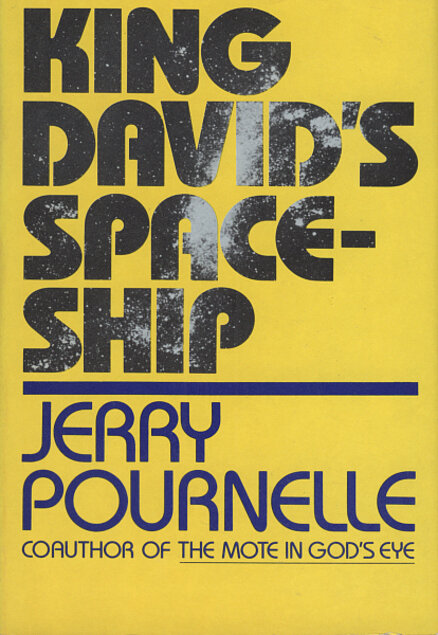
When I discovered the works of Jerry Pournelle, I was in a slough of despond about science fiction novels. I simply couldn’t find anything I liked, so when I stumbled on this book, it started a long love affair with the works of Pournelle. Fortunately, Jerry had a long career, which was winding down in the early 2000s, but not yet over. So that gave me many works to read and enjoy, several of which would be at the top of my list of favorites.
Looking back, I now better understand why I liked Jerry Pournelle’s works so much, especially King David’s Spaceship, but also why I had trouble finding any other authors in the field that I liked for nearly a decade. I simply couldn’t articulate what it was that I liked about this book, so I adopted the ideas of others. Unfortunately, I’ve come to realize that those ideas simply didn’t map well to the kinds of stories I liked, and the ones that I didn’t.
For example, since Jerry was a protege of John W. Campbell, I looked at Campbelline science fiction. When I did, I didn’t find what I was looking for. Campbell’s vision was described by John C. Wright in Transhuman and Subhuman:
According to Wright, Campbellian Hard SF consists of:
-Speculation about how near-future technological advances might affect man on a social and metaphysical level
-Scientific optimism combined with classical Liberalism
-A naive love of theory (Which William M. Briggs has wisely called the root of all evil.)
-Malleable human nature
-Protagonists who tend to solve problems with their wits more than with brawn
-Main characters guided by an ethical code of vague origin that holds up man as an inherently moral being
Jerry definitely put the first two of those elements into King David’s Spaceship. He crafted a tale of multi-layered political intrigue due to a planetary government being absorbed against its will into an interplanetary empire, but also managed to fit in technological elements that run from the construction of sailing ships to rocketry. Both the Haven petty kingdoms and the Imperials have broadly technocratic governments in the mode of the Kennedy Enlightenment, high minded and also efficient.
However, the rest of the list isn’t a good fit for King David’s Spaceship, or the rest of Jerry’s work. Jerry had a great love of protagonists who were military commanders, who were often brilliant strategists, but solved their problems by killing them first. And as for malleable human nature, the setting of this book, as well as many other novels in the CoDominium future history, are based on a notion of cyclical patterns in the form of human societies explicitly based on Arnold Toynbee.
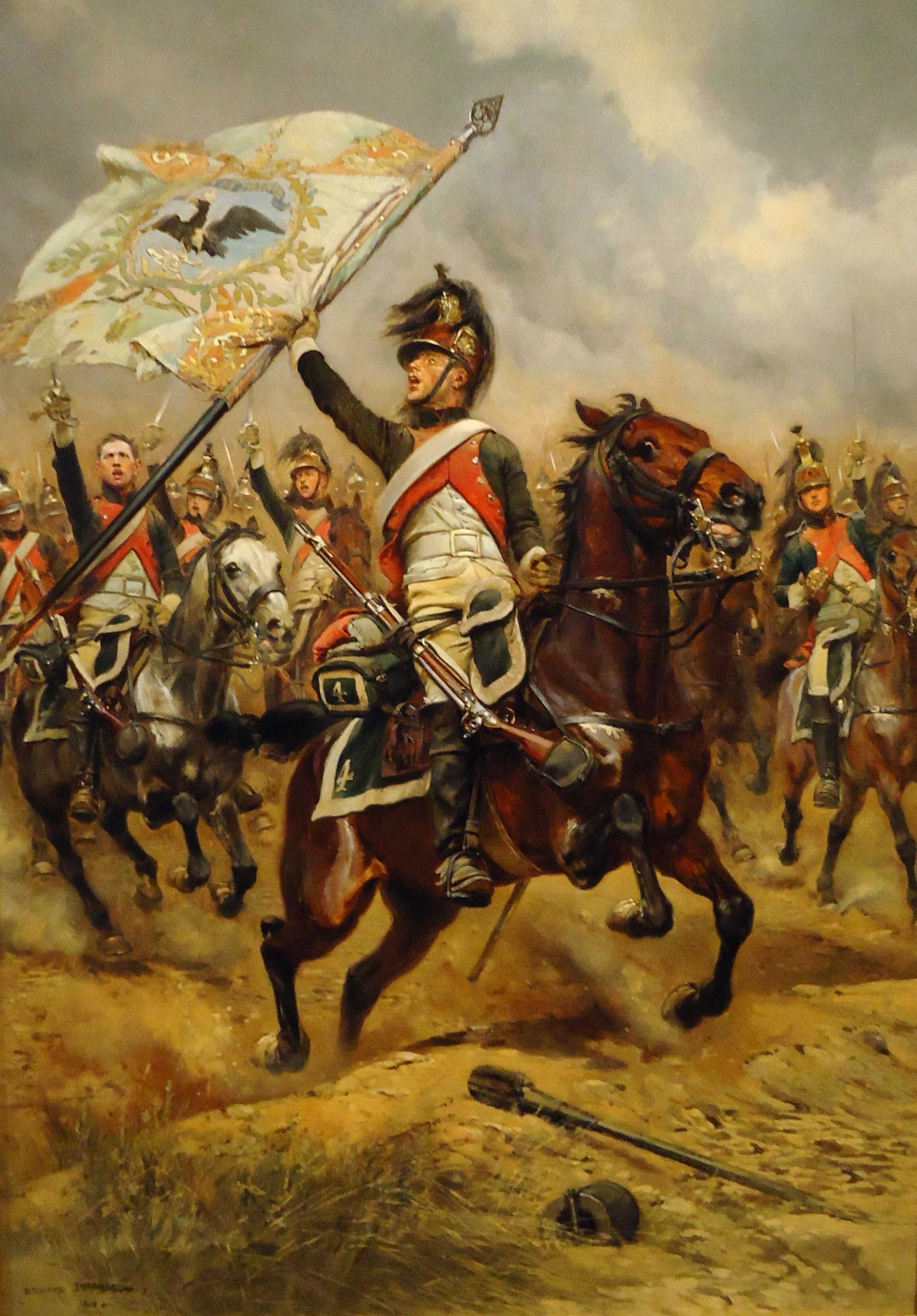
Colonel MacKinnie’s Approach to Problem Solving
French Dragoons with captured Prussian flag at the Battle of Jena
By Édouard Detaille - User:Blaue Max, Public Domain, https://commons.wikimedia.org/w/index.php?curid=3267064
And there is nothing vague about morality either. One of the major Imperial factions, and one with considerable clout, is the Catholic Church, state religion of the Second Empire of Man. Various characters of course do things that fall short of sanctity, but everyone knows what the standard is.
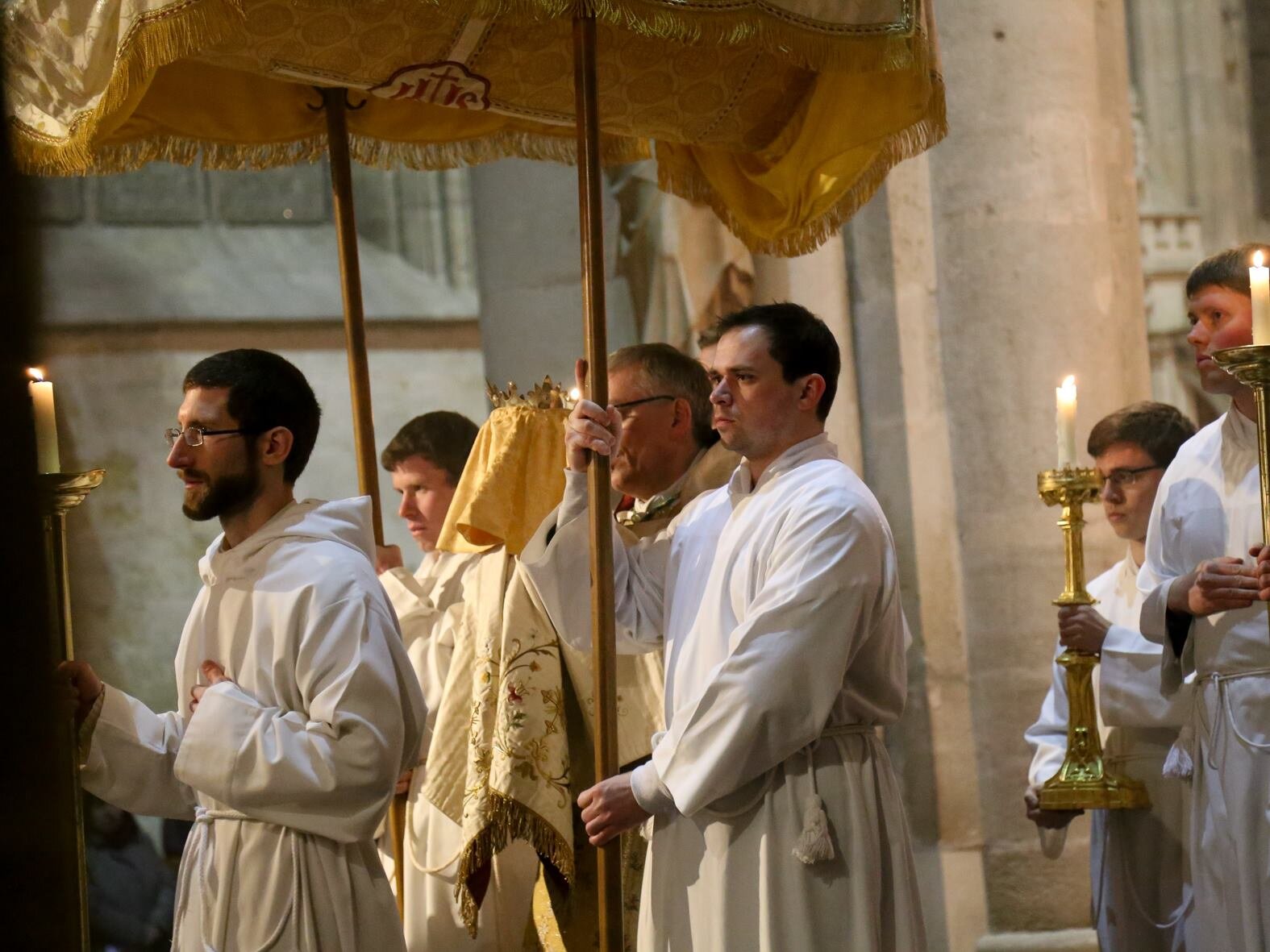
Religion in the CoDominium and the Empire of Man
So given that I don’t think Wright’s list applies to Jerry Pournelle, let’s compare that list with JD Cowan’s description of Gothic novels:
White against black. Dark against Light. Hero against Villain. Eternal Life against Endless Death. Temptation against Virtue. It goes beyond the surface into weighty themes of the Ultimate, God, and True Justice. The knowledge of a battle between forces beyond both parties at play that haunt the scenery and the overall world behind the story. It underpins every action and decision, and the thought that salvation or damnation is a stone throw away is the most nail-biting experience of them all.
Jerry pretty clearly didn’t write a pulp novel either. There are no explicit bad guys, except maybe for the Imperial Traders Association, who play the role of the heel in the Imperial factions. What we get instead is a mass of different players with different motives and objectives all striving against one another. Given that these are hard men, making hard choices, I could see how someone could come away with the impression that the various characters we meet are all just various shades of gray. But I think that impression misses not only the point of MacKinnie and his quest, but the real motives of most of the other characters too.
Since the Secession Wars shattered the First Empire of Man, various places and cultures ended up in different parts of the historical cycle. Makassar relapsed into barbarism, something like the 8th or 9th century AD Europe, while Haven is more like 18th or 19th century Europe, inventive and nationalistic. The Imperials are at the second peak of their power, urbane and civilized.
Yet what unites them is a basic orientation to order versus chaos. Given their different frames, each culture interprets that need differently, and even within a culture, various factions also have competing impressions of what is to be done. MacKinnie himself is driven by a sense of honor and duty, and one of the central themes of the quest is to whom does MacKinnie really owe his duty?
But most of all, this is just a great adventure, where Colonel MacKinnie leaves his home, travels across the stars, journeys through great peril, and emerges at the end with his purpose in life restored. I very much wanted to be Nathan MacKinnie, both the first time I read it, and now.
This book works because it combines elements of the Campbelline vision with a very Christian moral vision and a grand adventure. If you haven’t gotten into the works of Jerry Pournelle, this is a great place to start.
My other book reviews | Reading Log
Other books by Jerry Pournelle
CoDominium
The Prince (Colonel Falkenberg Omnibus)
Golden Road
There Will Be War
There Will Be War Volume IX: After Armageddon
There Will Be War Volume X
Tran

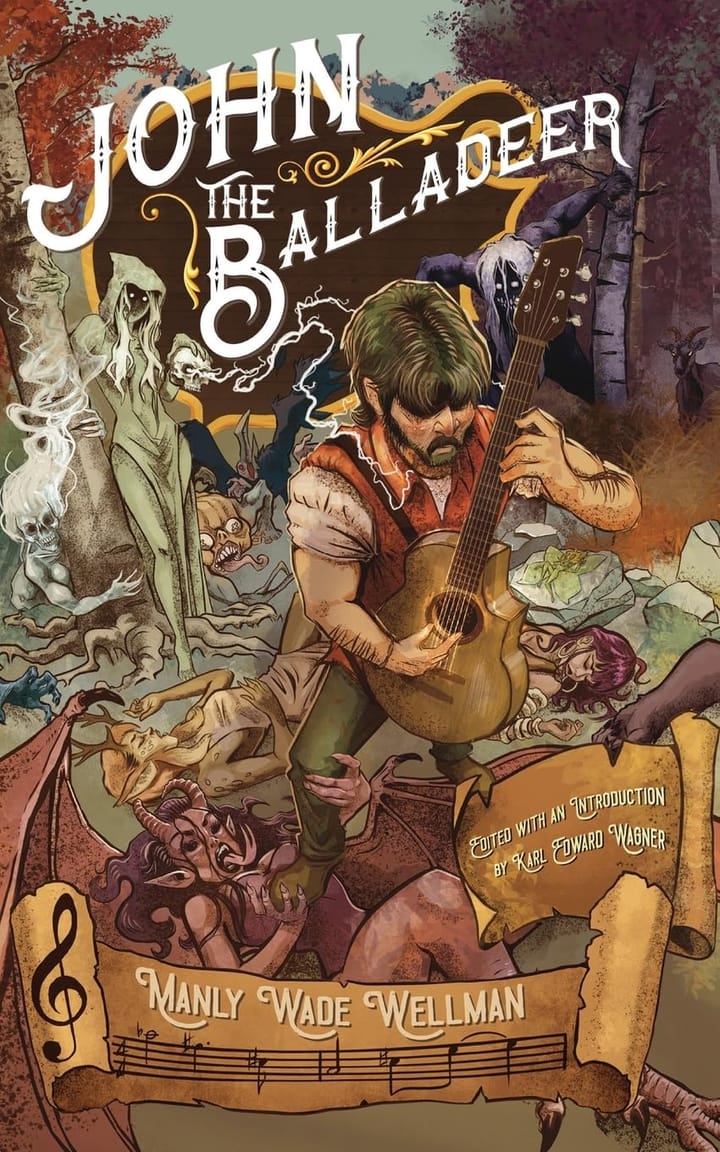
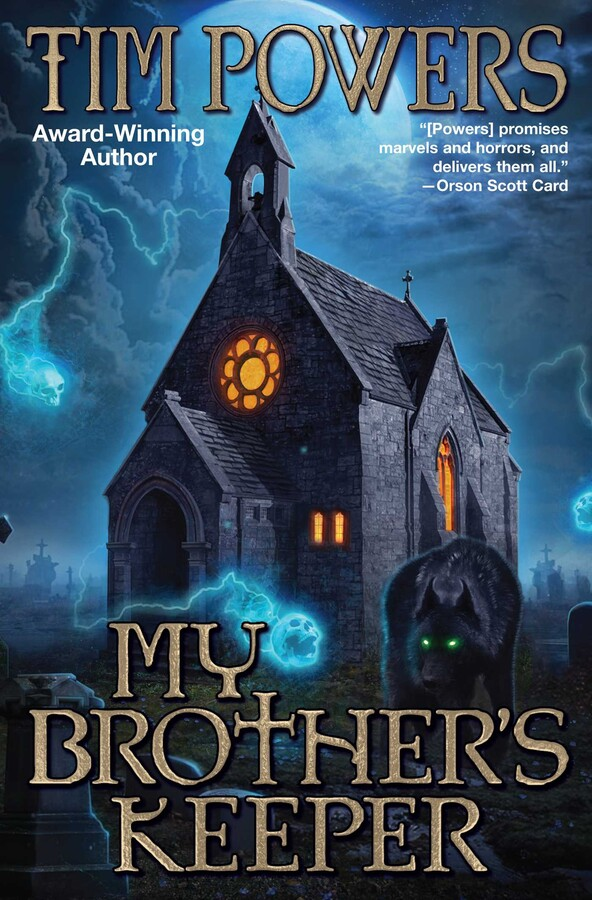
Comments ()